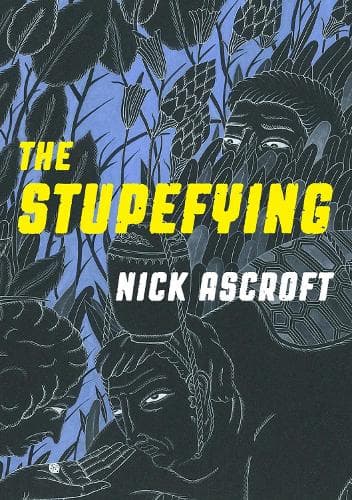Review: The Stupefying
Reviewed by Erica Stretton
Wellington poet Nick Ascroft’s The Stupefying begins on unstable ground. The title, the cover, and the first poem in the collection (You Will Find Me Much Changed) drag the reader into a shifting reality: ‘After my brain injury it was discovered I had fabricated the brain injury for attention… / …After my death I was in a foul mood.’ It’s a quicksand that continues throughout the book, which is divided into three sections, After, During-Slash-Before and Near Future.
The poems segue from intimately personal in Couples Therapy: ‘You were trying to utter your truths… / …also, trying to get the couples therapist to take my side,’ to considering more wide-ranging topics in an occasionally slightly didactic tone: ‘No poem shimmers. No writing is luminous.’ (Luminous and Shimmering Writing).
There’s a finger pulse on experimentation throughout, pushing the boundaries to see where the poetry can go. Sometimes, as in Sarcasm is the Lowest Form of Whist, the cleverness trips over itself and you read on to see how the poem will extract itself, which it inevitably neatly does.
But it’s the personal poems that really take up the scalpel, examining with a careful detachment and irony. The generosity and hope swimming throughout these is especially appealing, as in Always Saying Sorry:
Always Saying Sorry
(an email from Kate)
Well, sorry anyway I was a grump
this morning. All the time in fact. You know
I really love you. You’re no rubbish dump.
It’s just at home when I am really low
it’s suffocating, and I feel like
you make more mess for me to clean.
I know I get to stay home with the tyke.
I’m grateful that I can. But does that mean
the rest of my existence has to be
discounted? I’m exhausted all the time,
and tired of never having money. We
are wasting our potential. Still. So I’m
depressed, stuck here while time just disappears.
I realise it’s been like this for years.
Reviewed by Erica Stretton
